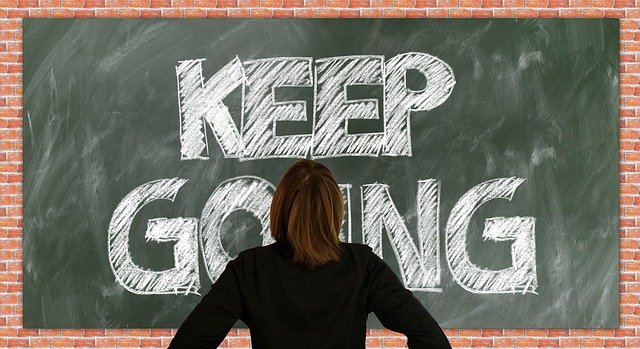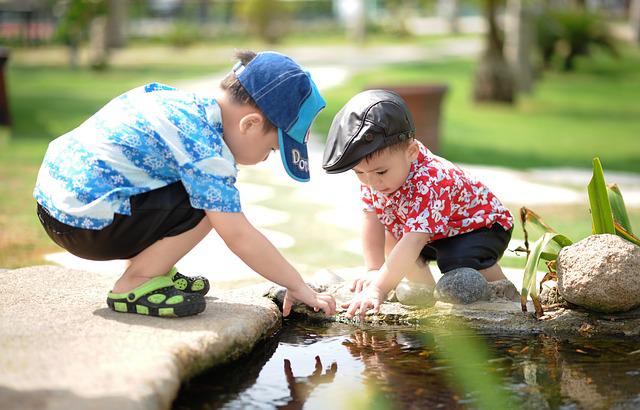Self-esteem can be a mixed bag. When people move from a sense of justified pride earned by working their way through a task to being convinced of their own superiority with little to no justification, something has clearly gone awry. But there is a clear area where self-esteem is healthy and where, particularly in children, it can serve as an armor against all manner of negative influences. Building that positive self-esteem and thickening the armor starts early. As parents of preschool children, there is no time like the present.
The single biggest thing we can recommend doing as parent is fostering what we call a journey or growth mentality. Choosing to live life as a journey filled with obstacles and opportunities that give us the ability to continually grow who we are as people is rewarding. Some examples of putting a growth mindset into action include:
– Reinforce that when we have a failure at a task it is a temporary setback and an opportunity to learn something about ourselves, not a sign that we have hit some limit that keeps us from ever succeeding. While there are certainly differing limits in abilities in each and every one of us, it doesn’t mean that we can’t improve. The way we find our limits is to push them and learn from our failures, not to say “I didn’t do great the first time I tried, so I should just accept I am not good at something”. Next time you see your child frustrated that they can’t grasp a concept, be ready. Let them know you have had to struggle at times to get to where you are. Just as important, let them know that you still struggle, but you value the growth that working through limits provides.
– Proper use of goals is important. Goal oriented thinking that focuses on some imaginary, long-term fixed endpoint is, in our experience, poisonous to the idea of becoming a person who benefits from their journeys. It can also frequently lead to unhappiness and emptiness when, as a very muddy goal is missed, a sense of being a failure can take over. To help your child learn to use goals as a way to steer the journey rather than define the destination, work with them on understanding how to set smaller, achievable goals that are designed to help them grow in a direction. For example, “I want to be able to kick the ball in a straight line instead of having it go every which way” is a small goal that builds toward something. Once mastered the next goal might be “I want to be able to kick the ball 10 feet further in the same straight line” may come next. Each success breeds a sense of deserved accomplishment that stems from easily identifiable, self-guided actions. In comparison, “I want to be the world’s greatest soccer player” is not going to set up many opportunities for esteem building successes, nor does it define any steps to reach the destination.
Another thing you can do as a parent is to ensure that you keep your praise focused on actions and outcomes and not about how you feel about what your child did. A child that learns to do things to garner external praise loses the focus on doing things for the sense of internal satisfaction. To return to the ball kicking example, the negative praise would be the generic “I’m so proud of you”. A more positive action would be to say “Wow, look how far you kicked that ball. You must be so proud of yourself for working hard to learn to do that”. The latter is about the result whereas the former is really about an uncontrollable externality.
With both of these things, the journey mentality and proper praise, it is important to ensure your child recognizes what is going on in terms of actions and outcomes. As a parent, you can help them associate a feeling that they have failed at a current task with a past time when they also didn’t do great at first, but ended up eventually being able to do something. This is usually pretty easy in early childhood as children are continuously mastering new skills. Similarly, when they accomplish something that is the clear result of practice, be sure they understand that the accomplishment wasn’t magic, but rather an outcome from the effort they put in.
The final thing we strive to encourage is real resilience. Parents who are regular attendees of our coffee klatches know we are big on failure and adversity as a way to foster growth. While the saying tells us death and taxes are foregone conclusions, we humbly suggest that it is equally true that all manner of adversity will inevitably make its way into our lives and we will have to persevere. As a parent, be supportive when this happens with your child, but don’t jump in and fix it for them unless the stakes demand that you do so. Encourage your child to ask for help if they are overwhelmed or can’t see the problem. Find ways to help them build confidence. Ultimately, they have to be the ones to commit to recovering when the going gets tough. Like so many things in life, practice, support and the right attitude lead to success. The message should always be “keep going”.
Montessori by its nature reinforces these ideas. Peek in the infant room window at lunch or snack time and you will see positive, deserved self-esteem being built from the youngest age. Keep it going at home.





